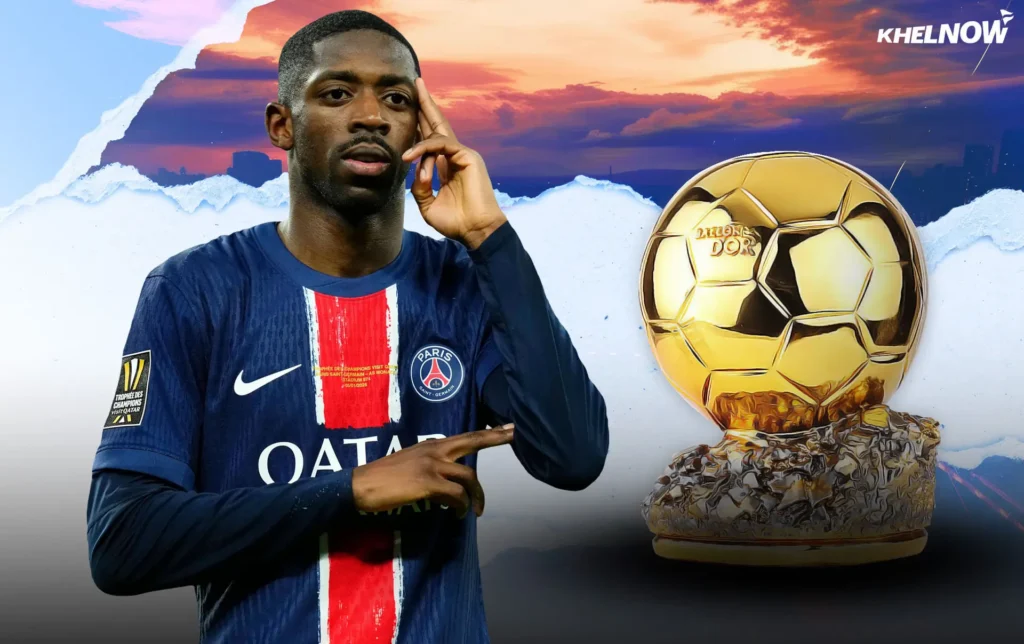Why Ousmane Dembélé Leads the 2025 Ballon d’Or Race
The Ballon d’Or has always carried weight. Whether one agrees with the voting system or not, it remains the highest individual honour in football. The 2025 edition, judged on performances from August 1, 2024 to July 13, 2025, promises fierce debate, with stars across Europe staking a claim.
Mohamed Salah topped the continent for goal involvements, Kylian Mbappé led the scoring charts, and Barcelona’s Lamine Yamal dazzled in La Liga. Yet, bookmakers and pundits alike agree on one frontrunner: Ousmane Dembélé.
The Paris Saint-Germain forward finally delivered on the potential long attached to his name. In a season where PSG swept Ligue 1, the Coupe de France, and most importantly, their first-ever Champions League title, Dembélé was at the heart of it all.
He finished the campaign with 33 goals and 13 assists in all competitions. Only Mbappé (36) and Robert Lewandowski (35) scored more non-penalty goals than his 32 across Europe’s top five leagues. His transformation was remarkable: just a year prior, he had managed six goals in 42 appearances.
The 28-year-old’s season can be divided into two parts. Up to mid-December 2024, he had only five goals in 18 games. But once the new year began, he caught fire. From January to the Champions League final, Dembélé scored 25 goals and added eight assists in 29 matches. No player in Europe could match his 33 direct goal involvements during that stretch, with only Mbappé scoring more goals (29).
Highlights included back-to-back hat-tricks against Stuttgart and Brest, followed by a run of 24 goals in his first 20 games of 2025. His scoring slowed in the final months, but he remained vital, providing six assists in his last 10 matches, including two in the 5-0 Champions League final win over Inter. That made him the first player since Marcelo in 2018 to deliver two assists in a UCL final.
In Europe, his numbers were historic. Dembélé produced 14 goal contributions (8 goals, 6 assists) in PSG’s run to the Champions League trophy – the most ever by a player for a French club in the competition. He also created 38 chances, joint-most with Barcelona’s Raphinha.
Domestically, he was just as effective. His 27 Ligue 1 goal involvements (21 goals, 7 assists) led the division, with 20 non-penalty goals putting him comfortably ahead of every other scorer.
Underlying metrics showed just how complete his season was. Despite spending over half his minutes as a makeshift striker, Dembélé ranked in the 100th percentile for chance creation and progressive carries, while also sitting in the 99th percentile for shots and touches in the opposition box. On a per-90 basis, he led all forwards in Europe’s top five leagues for non-penalty goals (1.07) and shots (5.3).
He wasn’t only scoring and assisting; he was involved in nearly every attacking move. His 9.6 attacking sequence involvements per 90 in Ligue 1 was the highest in Europe, and his 10.4 in the Champions League also topped the competition.
PSG’s treble-winning campaign was built on collective brilliance, with Achraf Hakimi, Vitinha, Fabián Ruiz and young star Désiré Doué all starring at different stages. Yet it was Dembélé who consistently turned games in their favour, especially in the Champions League.
Being the standout player for the standout team often tilts the Ballon d’Or vote. For Ousmane Dembélé, 2024-25 was not just the best season of his career – it was the year he finally became the player many always believed he could be.
Should we send you latest update about your favourite sports and team?
Enter you email in the box below and hit the subscribe button to join our teaming 876+ sports community.
